13 Best Operating Systems for the Odroid XU4: Odroid XU4 Supported OS Options
The Odroid XU4 is a powerful, versatile single-board computer (SBC). Because of its octa-core processor, it’s more powerful than the Raspberry Pi 3 B+, making it a worthy Raspberry Pi alternative. Therefore, the Odroid XU4 surpasses many SBCs in processing power. Since the XU4 boasts impressive computing capabilities, it’s well-suited to a range of applications, from a general Linux desktop to a retro gaming arcade, lightweight home theater PC (HTPC), and more. Check out the top Odroid XU4 supported OS options and who should use them!
Getting Started with the Odroid XU4: What You’ll Need
Configuring an Odroid XU4 is pretty simple. Aside from the main board, you’ll need a compatible 5V/4A power supply, microSD card or eMMC module, and ideally a case. Plus, you’ll need some sort of input device such as mini keyboard or keyboard and mouse. Unlike the Raspberry Pi 3 B+ and many competing single-board computers, the Odroid XU4 lacks Wi-Fi and Bluetooth onboard. As such, you’ll need a USB Wi-Fi adapter if you plan to use wireless networking.
- Odroid XU4 board
- 5V/4A power supply
- microSD and/or eMMC module
- Case (optional, recommended)
- Input device
Cost: You can snag an Odroid XU4 for $61.95 from AmeriDroid (many thanks to the good folks over at AmeriDroid for providing an Odroid XU4 for testing and tutorials!). Tacking on a few extras such as a case and PSU bumps the price to around $100 or more. Especially for the specs, that’s incredible value.
Odroid XU4 specs:
- Exynos 5422 Octa big.LITTLE ARM Cortex-A15 @ 2.0 GHz quad-core and Cortex-A7 quad-core CPUs
- Mali-T628 MP6
- 2GB DDR3 RAM
- 2x USB 3.0, 1x USB 2.0
- Gigabit Ethernet
- HDMI 1.4a
Odroid XU4 Supported OS Options and Who Should Use Them
Check out the best operating systems for the Odroid XU4 and who should use each!
Ubuntu
There’s a reason Ubuntu remains a top choice among Linux operating systems. This Linux distro is easy to use and comes in a variety of flavors. My Odroid XU4 runs Ubuntu MATE. It’s compatible with Linux OSes running the Linux/Ubuntu Kernel 4.9. As such, you have several options including Ubuntu 14.04 and on.
Ubuntu on the Odroid XU4 is best for anyone seeking a basic Linux desktop PC. Since you can install software such as Kodi and RetroPie in Ubuntu, it’s a good choice for a comprehensive desktop experience with robust gaming and multimedia capabilities.
Best for: General desktop use
Android
The Odroid XU4 is one of the best SBCs for running Chrome OS and Android. With images for Android 4.4.4 and a third-party Odroid XU4 image for Android 7.1.1 Nougat, you can transform your Odroid XU4 into an Android desktop. Then, simply download your favorite Android apps and software. A project like this is excellent for gaming and videos as a do-it-yourself (DIY) streaming and gaming set top box. Additionally, you may use an Odroid XU4 running for Android to test out Android apps in development.
Best for: HTPC and gaming use, Android app development
Android TV
While there are official and third-party Android images for the Odroid XU4, there’s a fantastic Android TV image as well. For those seeking an incredible Android experience optimized for a television, monitor, or projector, check out the third-party Android TV image for Odroid XU4. Whereas the Android image is a tablet-optimized version of Android, the Android TV release is built specifically for navigation with a controller as opposed to a touchscreen. The straight-up Android release can be a bit clunky with just a gamepad or similar input device. You’ll find a mouse or touchpad necessary with the vanilla Android release.
Because the Android TV Odroid XU4 image is engineered for viewing on a television and navigation sans touchscreen, it’s best for a multimedia, like a DIY Nvidia Shield TV set up. However, this can also serve as a means to test Android TV apps in development.
Best for: HTPC and gaming use, Android TV app development
Lakka
An open-source retro gaming distro, Lakka is available for a smattering of platforms including the Odroid XU4. It’s based on RetroArch, morphs devices such as the Odroid XU4 into a full-fledged gaming machine. There’s support for consoles ranging from the Atari 2600 and MAME to the Nintendo 64 (N64), PlayStation 1 (PS1), and PlayStation Portable (PSP). Although Lakka comes loaded with options, it’s at times too comprehensive. Nevertheless, Lakka offers what’s arguably the best gaming experience on the Odroid XU4.
Best for: Best for: Gaming
RetroPie
While RetroPie is best known for its Raspberry Pi compatibility, it’s available for Linux PCs and Odroid boards including the XU4. There are a few installation methods. You can install RetroPie on the Odroid XU4 with Ubuntu, or a standalone RetroPie for Odroid XU4 image. The Linux-based RetroPie runs on Debian, and in addition to its slew of retro gaming emulators, there’s a Kodi baked in for HTPC purposes.
Best for: Gaming and HTPC use
Recalbox
A Linux-based retro gaming operating system Recalbox sports a user-friendly installation process and configuration. There’s a Recalbox for Odroid XU4 image which, once mounted to an eMMC module or microSD card, may be booted up with ease. Recalbox features spectacular out-of-the-box support for gamepads, making it an awesome choice for beginners. Unlike Lakka and RetroPie, Recalbox lacks a few more advanced options such as shaders and certain emulators including Intellivision. However, for first-time users, Recalbox is the easiest means of creating a DIY retro gaming arcade. Based on EmulationStation, Recalbox appears similar to RetroPie, and also boasts Kodi.
Best for: Gaming and HTPC use
GameStation Turbo
Aside from Lakka, RetroPie, and Recalbox, you may opt for GameStation Turbo on the Odroid XU4. Similar to Recalbox and RetroPie, GameStation Turbo is a Debian-based entertainment distro with EmulationStation and Kodi. There’s an image for the Odroid XU4 which makes for quick installation.
Best for: Gaming and HTPC use
Kali Linux
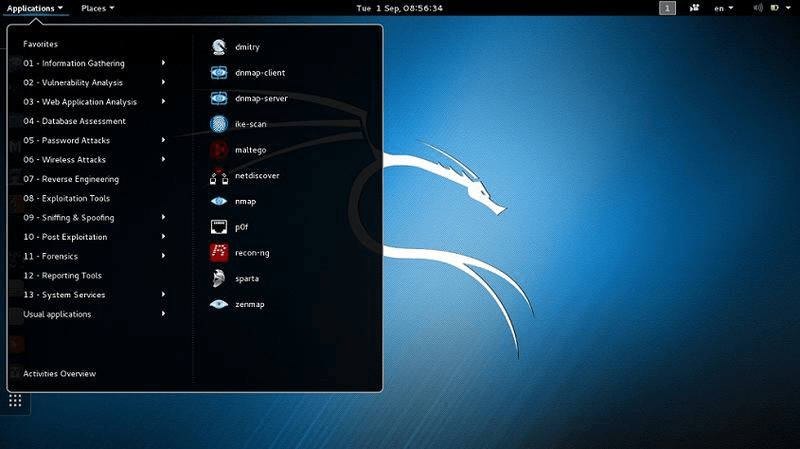
A Linux distro for penetration testing and ethical hacking, Kali Linux is a highly-specialized Linux OS option. It’s among the more niche Odroid XU4 supported OS options with its pentesting suite of tools. Although it’s not a Linux distribution suitable as a general desktop, Kali Linux on the Odroid XU4 is excellent for security-oriented developers and programmers. Notably, Kali Linux appears several times in USA hit series “Mr. Robot.”
Best for: Security audits and penetration testing
Arch Linux
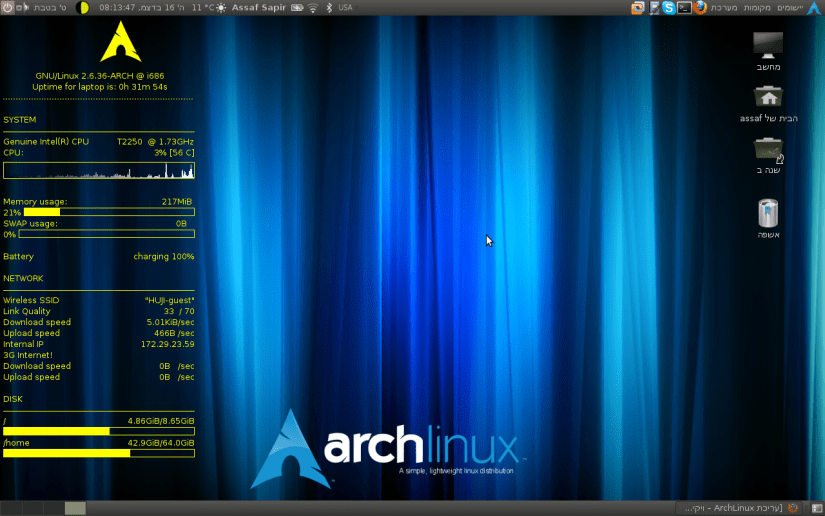
Source Wikipedia
Linux OSes vary from user-friendly releases such as Manjaro Linux, ChaletOS, and Ubuntu to roll-your-own distros like NuTyX and Gentoo. Arch Linux is a solid choice as a distro for total PC control. An ultra-technical operating system tailored for the individual user, Arch Linux presents one of the top tier package managers in Pacman. There are loads of reasons to install Arch Linux on any PC, particularly the Odroid XU4.
Best for: General desktop use
Debian
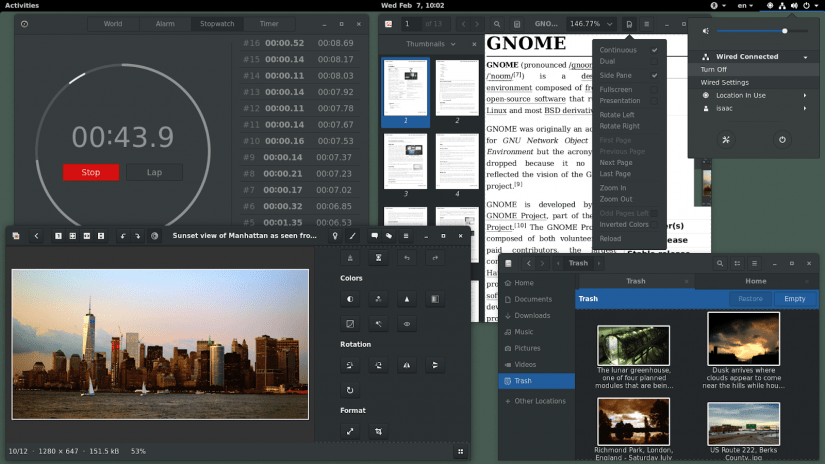
Source Wikipedia
Though it’s been around quite a while, Debian remains a best pick among Linux OS alternatives. Since it’s among the oldest Linux distros available, it’s super stable. There’s a reason many popular Linux OSes including Ubuntu, use Debian Linux as a foundation. With Odroid XU4 compatibility, Debian is spectacular for cobbling together a lightweight Linux PC with an Odroid XU4.
Best for: General desktop use
DietPi
Dubbed “lightweight justice for your SBC,” DietPi is a rock solid Odroid XU4 supported OS alternative. It’s Debian-based and images are as small as 400MB. With an onus on lightweight computing, DietPi reduces system resource consumption to free up RAM and CPU use. DietPi for Odroid XU4 boards is perfect for a basic Linux computer.
Best for: General desktop use
OpenMediaVault
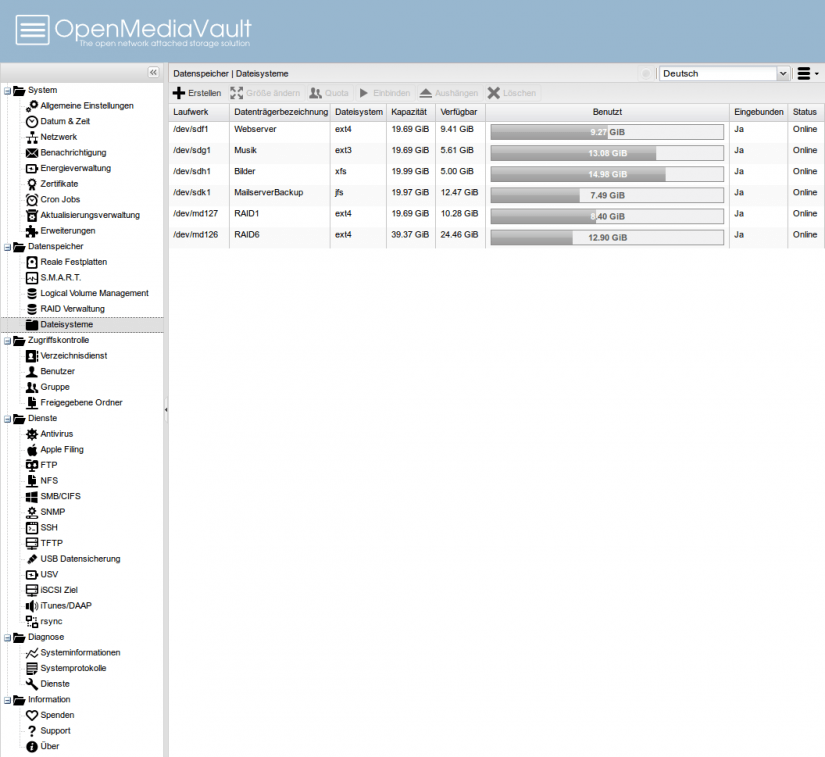
Though SBCs like the Odroid XU4 don’t feature beefy specs, you can nonetheless create a capable server with a Raspberry Pi. Because the Odroid XU4 bests many competing SBCs like the Pi, it’s a better choice as a server base. You can create an Odroid XU4 server using OpenMediaVault. Don’t expect incredible performance, but for a basic file server, or even DIY Spotify, OpenMediaVault on the Odroid XU4 is a suitable choice.
Best for: Server use
Yocto
The Yocto Project is an open-source project for making customized Linux-based systems. You can create anything from a lightweight PC to a maker-oriented IoT project. Running Yocto on the Odroid XU4 provides a bevy of options for a hardcore IoT project.
Best for: IoT applications
Best Operating Systems for the Odroid XU4: Final Thoughts
There are loads of operating systems available for the Odroid XU4. This makes it a versatile SBC ideal for projects ranging from a basic Linux PC to Android desktop, HTPC, retro gaming arcade, server, and more. With tons of OS choices, beefy hardware, and ease of use, the Odroid XU4 is an awesome single-board computer.
Your turn: Which Odroid XU4 supported OS do you prefer?






























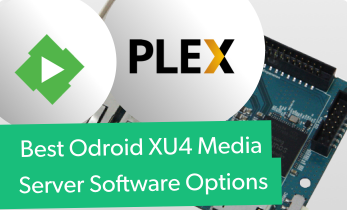



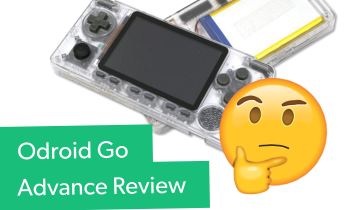










Leave your feedback...